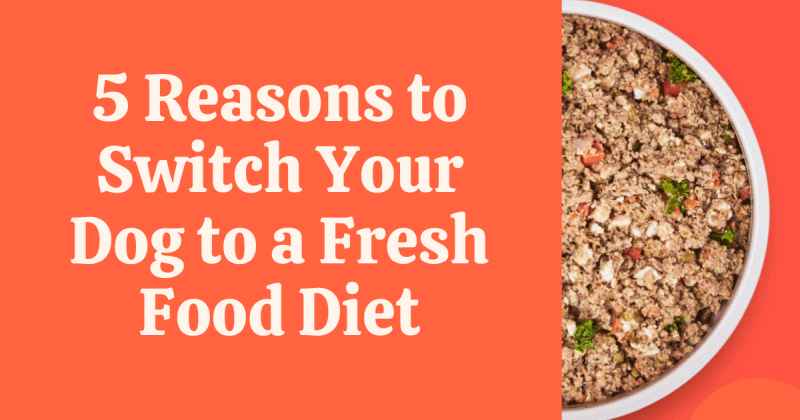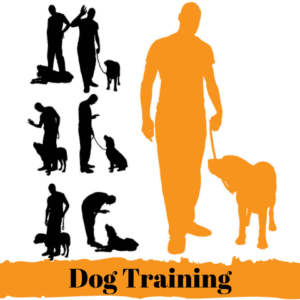As dog owners, we all want to provide the best possible nutrition for our furry friends. With so many options available, choosing the proper diet for our four-legged companions can be overwhelming. One increasingly popular choice among dog owners is the raw food diet.
So, let us explore the numerous benefits of a raw food diet for dogs, shedding light on why it may be the healthiest option for your beloved pet.
First and foremost, a raw food diet closely mimics the natural diet of dogs’ ancestors, wolves. Dogs are carnivores, and their bodies are designed to digest and thrive on raw meat, bones, and organs. By feeding them a raw food diet, we provide the nutrients they need to thrive. This diet is rich in essential vitamins, minerals, and amino acids, promoting optimal health and vitality.
One of the most noticeable benefits of a raw food diet is improved digestion. Processed kibble and canned foods often contain additives, fillers, and grains that can be difficult for dogs to digest. Raw food, on the other hand, is easily digested and absorbed, leading to healthier bowel movements and a reduced risk of gastrointestinal issues such as constipation or diarrhea.
Moreover, a raw food diet has been linked to a more robust immune system. The natural enzymes and probiotics in raw food help maintain a healthy gut flora, which is crucial in boosting the immune system. With a more robust immune system, dogs are better equipped to fight off infections, allergies, and other common health issues.
Another advantage of a raw food diet is improved dental health. Chewing raw bones helps clean dogs’ teeth naturally, preventing tartar build-up and gum disease. This promotes fresh breath and reduces the risk of more serious dental issues in the long run.
Furthermore, many dog owners have reported that a raw food diet has helped alleviate numerous health conditions, such as allergies, skin problems, and even weight issues. The absence of artificial additives and fillers, combined with the high-quality nutrients in raw food, can contribute to improved overall health and well-being.
In conclusion, a raw food diet offers many benefits for dogs. The advantages are numerous, from improved digestion and more robust immune systems to better dental health and relief from various ailments. By choosing a raw food diet for your furry friend, you are providing them with the healthiest nutrition possible, ensuring they live a long, happy, and vibrant life.
Revolutionize Your Pet’s Nutrition with Ollie Pet Food
Ollies Pet Food: fresh, high-quality ingredients sourced from natural sources deliver nutritious meals directly to your doorstep.

Ollie provides customized, nutritious dog food crafted from genuine, human-grade ingredients to match your dog’s distinct dietary requirements. It contains no fillers, by-products, artificial flavors, or preservatives.
Ollie blends meticulously selected components and veterinarian-formulated recipes. Additionally, new customers are eligible for a 50% discount on their initial box.
Affiliate Disclaimer: Some of the links on this website are affiliate links, which means that if you click on them and make a purchase, we may receive a commission. However, this does not affect our editorial integrity. We only recommend products or services that we genuinely believe in and have personally tested or researched. Your support helps us continue to provide valuable content to our readers. Thank you for your support!
Understanding the Nutritional Needs of Dogs

When it comes to providing the best care for our furry friends, understanding their nutritional needs is paramount. Like humans, dogs require a well-balanced diet to maintain optimal health and vitality.
In this section, we will delve into the fundamental aspects of a healthy raw food diet for dogs, exploring the importance of nutrition and how it can contribute to their overall well-being.
Dogs are carnivorous animals by nature, and their bodies have evolved to thrive on a diet rich in animal-based proteins. This is why a raw food diet, also known as a biologically appropriate diet, has gained immense popularity among dog owners who strive to provide the healthiest nutrition for their beloved pets. By feeding dogs a diet that resembles what they would eat in the wild, we can ensure they receive the essential nutrients they need to thrive.
First and foremost, protein is the building block of a dog’s diet. High-quality protein sources such as lean meats, organ meats, and eggs are essential for maintaining strong muscles, healthy skin, and a shiny coat. Additionally, protein provides vital amino acids that support various bodily functions, including immune system health and tissue repair.
In addition to protein, dogs require a balance of fats and carbohydrates. Healthy fats, such as those found in fish oil and coconut oil, are crucial for promoting a healthy coat and skin and supporting brain function. On the other hand, carbohydrates should be limited in a dog’s diet, as their bodies are not designed to digest large quantities of grains or starchy foods efficiently.
Furthermore, dogs need a wide range of vitamins and minerals to maintain optimal health. These include vitamins A, C, D, and E and minerals like calcium, phosphorus, and iron. While some of these nutrients can be obtained through a raw food diet alone, it is advisable to supplement with high-quality dog supplements to ensure all nutritional needs are met.
Understanding the nutritional needs of dogs is the foundation for providing them with a healthy raw food diet. We can support their overall well-being and longevity by offering a balanced mix of proteins, fats, and carbohydrates, along with essential vitamins and minerals.
I have written other articles that dive deeper into the specifics of creating a raw food diet that meets the unique needs of our canine companions. So use the search box and search on Raw Dog Food for other articles that cover an in-depth exploration of meal planning, portion sizes, and recipe ideas that will make your dog’s taste buds wag with delight!
Common Misconceptions about Raw Food Diets for Dogs
As dog owners become more conscious about their pet’s health, the popularity of raw food diets for dogs has increased. However, with this surge in interest, several misconceptions have emerged. In this section, we will debunk some of the most common misconceptions surrounding raw food diets for dogs, providing you with accurate information to make informed decisions about your dog’s diet.
Misconception 1: Raw food diets are nutritionally imbalanced.
One prevailing myth is that raw food diets lack essential nutrients, leading to imbalances and deficiencies. However, when properly formulated, raw food diets can provide complete and balanced dog nutrition. By incorporating a variety of meats, bones, organs, and vegetables, you can ensure your dog receives all the necessary nutrients, including proteins, vitamins, and minerals.
Misconception 2: Raw food diets are prone to bacterial contamination.
While it is true that raw food may contain bacteria, it is important to note that dogs have a shorter and more acidic digestive system, making them less susceptible to harmful bacteria. Moreover, proper handling, sourcing high-quality ingredients, and implementing safe food preparation practices can minimize the risk of contamination. Regularly assessing the freshness and quality of ingredients is paramount to ensure your dog’s safety.
Misconception 3: Raw food diets lead to dental problems.
Contrary to popular belief, raw food diets can contribute to better oral health in dogs. Chewing raw meaty bones helps remove plaque and tartar, promoting healthier teeth and gums. However, choosing appropriate bones that match your dog’s size and chewing ability is crucial to avoid any dental mishaps.
Misconception 4: Raw food diets are expensive.
While raw food diets can be more costly upfront compared to commercial kibble, they can save you money in the long run. The improved health and reduced risk of chronic illnesses associated with raw food diets may result in fewer veterinary visits and lower healthcare costs over time. Additionally, sourcing ingredients from local farmers or buying in bulk can help mitigate expenses.
In summary: The Benefits of a Raw Food Diet for Dogs
We aim to empower dog owners like you to make informed decisions about your pet’s diet by dispelling these common misconceptions. When properly balanced and prepared, raw food diets can provide numerous health benefits, including increased energy, improved coat condition, and better overall wellness; always consult a veterinarian or a canine nutritionist to design a raw food diet tailored to your dog’s needs.
Related article: Benefits of Homemade Dog Food Include Knowing What’s In It
